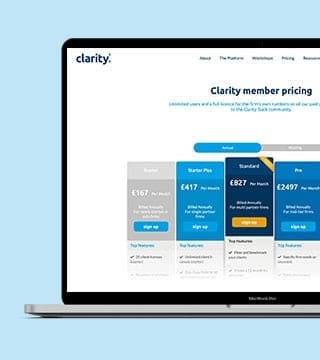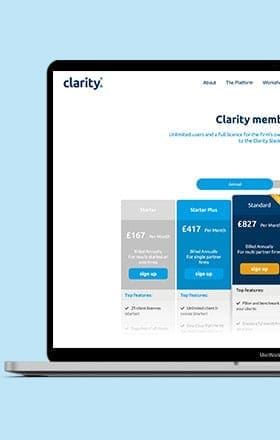By Aynsley Damery, March 2020; for Accountancy Plus March Issue.
In this article Aynsley considers why we shouldn’t fear change, particularly in technology, and looks at how the right combination of people, processes, and technology can positively transform businesses, the value they create and the services they provide.
Background
There is no doubt that the pace of change in technology has increased exponentially over the last numbers of years and that pace is set to accelerate even further. As individuals, the computing power we now have access to on our phones, dwarfs that of all of NASA in 1969! Our world is now so connected – both people and devices, and the ability to reach customers is no longer easily restricted by borders. The move to the cloud and the ability to analyse big data has opened up incredible opportunities for large companies. Harnessing the power of technology effectively has become critical to gaining competitive advantage.
But what about SMEs, accounting firms and their clients? Are they able to take advantage of these technologies too? Can they harness the power of artificial intelligence, machine learning and blockchain? Or, is this just a step too far, cost prohibitive and overly complex for small businesses? Could technology signal the end of jobs and the inability of small businesses to compete?
Let’s take a look…
What are the biggest challenges we face today in relation to technology and innovation?
For many small business owners and their teams, it’s fear. Fear of change, fear of failure and fear of the unknown. Of course, that doesn’t just apply to technology. That fear often leads to inaction or a failure to implement and it could mean that many small businesses will simply get left behind.
“Resisting change is like holding your breath. Even if you are successful, it won’t end well!”
Lao Tzu
Fear of technology has also been stoked by many articles signalling the end of jobs as we know them. “Computers will take over the world!” The reality is that technology will certainly replace monotonous, dreary and repetitive tasks. But that’s good because it frees up our time, time to spend on higher value work that truly adds value to our clients/customers. And it doesn’t mean we all need to become data engineers/ scientists!
For many people and businesses, there can be a sense of feeling overwhelmed. There are so many Apps (software/ platforms) to choose from, what’s the right one for us and our clients? How do we find out and how do we get independent advice? How do we make the technology work for us? How do we know how to make the trade-off between fitting technology into our existing systems and processes or adapting our systems and processes to t the technology. Ultimately, it needs to be right for us (and perhaps our systems and processes are not!). We need to reach out to others (our peers and those from other industries) and find out how they achieved success. What were their successes, and failures? What can we learn from them? Join focus groups, masterminds and industry groups to connect, share and collaborate.
This is not about technology for technology’s sake. This is simple business. Before we decide on what technology is needed, we need to rstly understand:
- Our customers and what they need, want and value;
- Our business model – how we create and add that value;
- The systems and processes we need to deliver this;
- The problems are we trying to solve; and
- How can we do this better?
Then, and only then, can we truly appreciate what technology can do
to help. And we need to test and trial – not just dive in! Create a laboratory within the business. We need to plan, implement and review. This really is no different to how we would approach, or advise our clients on, any other aspect of business.
What has happened previously with technology in accounting?
As accountants, we’ve been told for years that compliance is dead and the future is advisory. However, for many of us to date, that simply isn’t true. Compliance is far from dead – we seem to be engaged in more compliance than ever before.
So, to date, much of our technological focus has been on streamlining our existing compliance services. It’s been relatively easy, in that for certain sizes of firms, there hasn’t been much choice. And the software has generally fitted in to historic business models and processes, without any significant change or innovation i.e. excel rather than manual ledgers or working papers, accounts compilation and ling software rather than word and ink.
It has been relatively easy to train and change management hasn’t been required.
What has changed, though, is what our client’s value. They are no longer prepared to pay significant sums for just accounts and tax returns. They want help and support to grow, increase profits, reduce tax bills and plan for exit – driving the introduction of new business models and service offerings across the profession.
These changes will require significant change management and investment in resources, time, and money.
According to various studies carried out in the UK and US, the top 5 things that SMEs are looking for from their accounts are:
1. Being a trusted advisor;
2. Responding quickly to their queries;
3. Understanding their business and industry;
4. Being affordable;
5. Communicating clearly with them as non-accountants
Any business would be lucky to hire an accountant who possesses all these traits, but there may not be enough time in the day for most accountants
to be everything, to all people, all at once! How can we have our fingers on the pulse of all our clients at the same time? How can we respond quickly to every client and have the time to keep our communications clear and simple? And how we provide attentive, proactive advice without driving costs up?
It’s not surprising that accounts and tax returns don’t make it to the list. Our clients didn’t go into business to do accounting, so they can’t imagine why we did! We need to help them see us as intentionally, proactively and primarily working to help them grow, rather than as someone who performs work they’re happy to get rid of.
But most importantly, to deliver all of these wants to all our clients at the same time, can’t be done without the help of technology. Throwing more sta resources at the issue won’t help. It will decimate the cost equation. We know this, as most accountants are already afraid to introduce added value services. They incorrectly assume that, as clients don’t want to pay for compliance services, they won’t want to pay for any other services. It’s pretty much the same for our clients with their customers too.
The other advantages of technology (particularly cloud, AI and machine learning)
COST
The introduction of cloud technology and software as a service (SaaS) platforms have driven down the cost of adopting and using many technologies. We no longer need to invest, update, maintain and backup on-site servers and can store data in military-grade secure data centres. We also no longer need to pay significant amounts upfront and can often pay based on usage, number of users, licences, amount of data storage etc. This has meant that small businesses now have access to the type of software and technologies previously the sole preserve of large enterprises (or enterprise software).
SPEED AND EFFICIENCY
We are less likely to suffer from server downtime and can access data anywhere, anytime on any device. Cloud applications connect to one another, not only increasing speed and efficiency, but reducing data input and hence the possibilities of error. With the advent of open banking, we are seeing bank data automatically feed and populate bookkeeping software, and data recognition applications are doing the same with bank and credit card statements and invoices. Anecdotal evidence is suggesting an 80%-time efficiency in bookkeeping. It’s becoming easier and faster to create management reports, three-way budgets and cash ow reports. On-boarding and customer relationship management software (CRM) are driving better customer service. Machine learning is automating routine tasks.
BETTER DATA
There is no doubt that small businesses can now access better data in a timelier fashion. Better data leads to better business decisions. However, business is complex and getting more so. Small business owners struggle to understand and to find the time to analyse big data. This is where we are seeing the next generation of software providing insights and not just raw data.
Don’t think this is the end for accountants as advisers though! A study by the Dominican University in California has shown that business owners that are held accountable, achieve 78% more. This is where we can truly help our clients, by holding them accountable. Helping them understand their numbers and how to make them better, how small differences can make a big difference to the bottom line, the difference between accounting pro t and cash ow, how to access funding and how best to generate a return on those funds, cash ow management, the importance of planning etc. This
is what our small business clients are really looking for from us and how we can deliver massive value. We have the inherent ability, training and skills to deliver all these services. And, if we do so through the use of technology, we can do so affordably too.
How to introduce tech properly
We’ve discussed many of the issues in introducing changes within your business. Introducing technology is no different. We shouldn’t be blinded by shiny new objects and treat the adoption of tech like any other business decision. We should be asking amongst others; is there a need, is it solving a problem, how does it t with our strategy, how will we plan, test and review? What is our measure of success?
In essence, we need to treat the adoption of technology as we would do with any new hire. Properly planned and researched, fitting an accurate job description, interviewed well and recruited slowly, properly inducted and introduced to the team, trained and adapted to existing systems and process or exceptionally, if it’s the right t or we know we need to make business model changes, adapting our systems and processes.
We also need to consider whether we are happy to be an early adopter and lead the eld. Be known as an innovator and by default, possibly make mistakes and have to pivot rapidly. If so, we may need to create an innovation team (or “laboratory”) within the rm to play, test, fail and learn fast. Or are we happy to be with the early/late majority. Following the crowd, learning from others – their successes and failures. It’s less risky and possibly makes the decision on which tech to use, but with the pace of change and acceleration within business, will we get left behind?
Conclusion
The advancement of technology is not something that we should be afraid
of – even when we look at the rapid acceleration in areas such as artificial intelligence, machine learning and blockchain! Indeed, small businesses can now effectively compete with many larger firms, when the right technology is implemented correctly.
However, technology is not a panacea, it is just an enabler.
Technology does the heavy lifting, the monotonous, dreary and repetitive tasks. Most of us are still in the relationship/people business i.e. we still need the emotional intelligence, lacking in technology, to manage our customer relationships. In fact, it’s the right combination of people, processes, and technology that will enable us to positively transform our business and deliver outstanding customer value and service at market beating prices!






